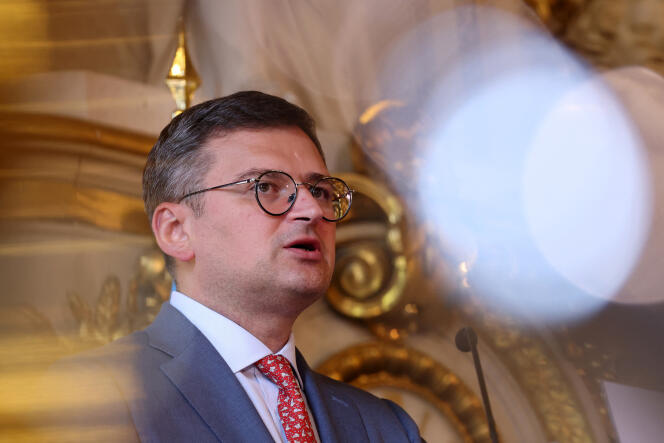


Ukrainian Foreign Minister Dmytro Kuleba left Paris on Wednesday, August 30, satisfied with the "military, humanitarian, diplomatic and economic support from France" and confident in the solidity of this commitment, after meeting with his counterpart Catherine Colonna on Tuesday, and then President Emmanuel Macron at the Elysée Palace.
In a sign of Paris's willingness to show its support for Ukraine, Kuleba was the guest of honor at the annual ambassadors' conference. In an interview with Le Monde, the Ukrainian minister downplayed the impact of voices calling for negotiations with Russia, as recently proposed by former president Nicolas Sarkozy, in the midst of the Ukrainian counter-offensive. "President Sarkozy had his moment of fame in Georgia in 2008. The way this crisis was handled was one of the reasons why everything else followed, including 2014 and 2022," with the annexation of Crimea and the invasion of Ukraine, said Kuleba with a certain irony, while acknowledging that Sarkozy had in his time supported the idea of an association agreement of the European Union with Ukraine that was ambitious.
The Ukrainian minister attached greater importance to the changing positions of European leaders on the future of collective security in Europe. "It became evident that Russia is neither a friend nor part of Europe, nor Europe," he said. "Russia is Europe's biggest enemy. Affection for Russian literature, ballet, big business projects and Russian money in general cannot erase this reality. Which brings us to the conclusion that Russia cannot be one of the pillars of a European security architecture, but the European security architecture should be built on the assumption that it should protect Europe from Russia." Kuleba hailed this as "a complete change of mindset," even if he admitted that there is still "a gargantuan amount of work" to be done to convince all his European partners. But "someone will have to watch the Eastern flank of Europe and that someone will be Ukraine. In NATO, of course."
While strengthening its own defense industry to boost arms production to a level not seen since the Soviet Union, Kyiv is not letting up the pressure on Western countries to increase their deliveries, both in quantity and quality. "Every conversation we have had (with our Western partners on upgrading equipment) started with a 'no' and very sincere emotion," noted Kuleba. These negative responses eventually turned around. The latest example is that of the American F16 fighter jets, which the Netherlands, Denmark and Sweden have committed to supplying to Kyiv, with the green light from Washington.
You have 60.28% of this article left to read. The rest is for subscribers only.
